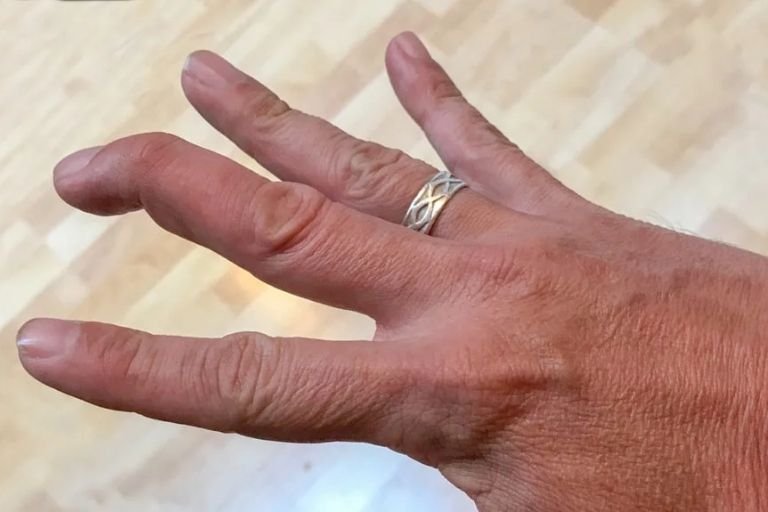- Fitwell Physiotherapy
Frozen Shoulder

Frozen shoulder, medically termed adhesive capsulitis, is a debilitating condition characterized by stiffness, pain, and limited range of motion in the shoulder joint. It typically develops gradually over time and can significantly impede daily activities and quality of life. Understanding its symptoms, causes, and treatment options is crucial for managing this condition effectively.
Please submit your details below.
Symptoms:
- Pain: Persistent, dull, or aching pain in the shoulder joint that worsens with movement or at night.
- Stiffness: Gradual onset of stiffness in the shoulder joint, making it difficult to perform simple tasks like reaching overhead or behind the back.
- Limited Range of Motion: Difficulty in moving the shoulder joint in various directions, such as lifting the arm or rotating it.
- Progressive Worsening: Symptoms tend to worsen over time, often developing in three distinct stages: freezing, frozen, and thawing.
Causes:
The exact cause of frozen shoulder is not fully understood, but several factors may contribute to its development:
- Inflammation: Inflammation of the shoulder capsule, a connective tissue surrounding the shoulder joint, can lead to the characteristic stiffness and pain.
- Injury or Trauma: Previous shoulder injuries, surgeries, or trauma can increase the risk of developing frozen shoulder.
- Immobility: Prolonged immobilization of the shoulder joint, such as after surgery or injury, can trigger the condition.
- Certain Medical Conditions: Conditions like diabetes, thyroid disorders, or cardiovascular disease may increase the likelihood of developing frozen shoulder.
When to See a Physiotherapist:
It’s essential to consult a physiotherapist if you experience persistent shoulder pain, stiffness, or limited range of motion, especially if these symptoms interfere with daily activities or worsen over time. Early intervention can help prevent further progression of the condition and improve outcomes.
Risks: Ignoring frozen shoulder or delaying treatment can lead to several complications, including:
- Increased Pain and Stiffness: Without intervention, the symptoms of frozen shoulder can worsen, causing increased pain and stiffness over time.
- Functional Impairment: Severe cases of frozen shoulder can severely limit the shoulder’s range of motion, affecting your ability to perform everyday tasks and activities.
- Muscle Weakness: Prolonged immobility and disuse of the shoulder joint can lead to muscle weakness and atrophy.
- Secondary Issues: Compensation for the affected shoulder can lead to overuse injuries or issues in other parts of the body, such as the neck or opposite shoulder.
Prevention:
While some risk factors for frozen shoulder, such as age or certain medical conditions, cannot be controlled, you can take steps to reduce your risk or prevent its occurrence:
- Maintain Shoulder Mobility: Engage in regular shoulder exercises and stretches to maintain flexibility and prevent stiffness.
- Avoid Prolonged Immobilization: If you undergo shoulder surgery or experience an injury, work with your healthcare provider to develop a rehabilitation plan that includes early mobilization.
- Manage Underlying Conditions: If you have diabetes, thyroid disorders, or other medical conditions associated with frozen shoulder, work with your healthcare team to manage these conditions effectively.
Treatments:
Treatment for frozen shoulder typically involves a combination of therapies aimed at reducing pain, improving mobility, and restoring function:
- Physical Therapy: A physiotherapist can prescribe specific exercises and stretches to improve shoulder mobility and strength gradually.
- Medications: Nonsteroidal anti-inflammatory drugs (NSAIDs) or corticosteroid injections may help alleviate pain and inflammation in the shoulder joint.
- Joint Mobilization Techniques: Manual therapy techniques performed by a qualified therapist can help improve joint mobility and reduce stiffness.
- Modalities: Heat therapy, cold therapy, ultrasound, or electrical stimulation may provide temporary relief from pain and stiffness.
- Surgical Intervention: In severe cases where conservative treatments fail to provide relief, surgical procedures such as manipulation under anesthesia or shoulder arthroscopy may be considered to release the tight shoulder capsule.
In summary, frozen shoulder is a challenging condition characterized by pain, stiffness, and limited shoulder mobility. Early recognition, intervention, and appropriate treatment can help alleviate symptoms, prevent complications, and restore shoulder function. Working closely with a physiotherapist or healthcare provider is essential for developing an effective treatment plan tailored to your specific needs and circumstances.
Frequently Asked Questions
Related Conditions
How Fitwell Physiotherapy Can Help?
Dr. Richa’s Fitwell physiotherapy has an extensive team of physiotherapists all within their own specialist areas of physiotherapy. Whatever your condition, we guarantee that we will have the best physiotherapist for you. We assess, diagnose, plan, cure and care for you.
Fitwell Physiotherapy Clinic, Pune provides you best physiotherapy treatment in Kharadi, pune. We also serve Chandan Nagar, Vadgaon Sheri, Keshav Nagar, Wagholi & nearby Areas in Pune. We are experts in treating Neck Pain, Hand Pain, Back Pain, Lower Back Pain, Knee Pain, Stiff Neck, Sciatica, Arthritis, Stroke Paralysis & Post Surgical Rehab.
We provide Specialized physiotherapy treatments in Sports Injuries, Pre and post Surgery, Neurologic, Pediatric, Chronic Pain/Fatigue, Rheumatology, Women’s Health, Men’s Health, Ergonomics, Vestibular, Amputees & all sort of Pain treatment and lifestyle conditions.

































































































